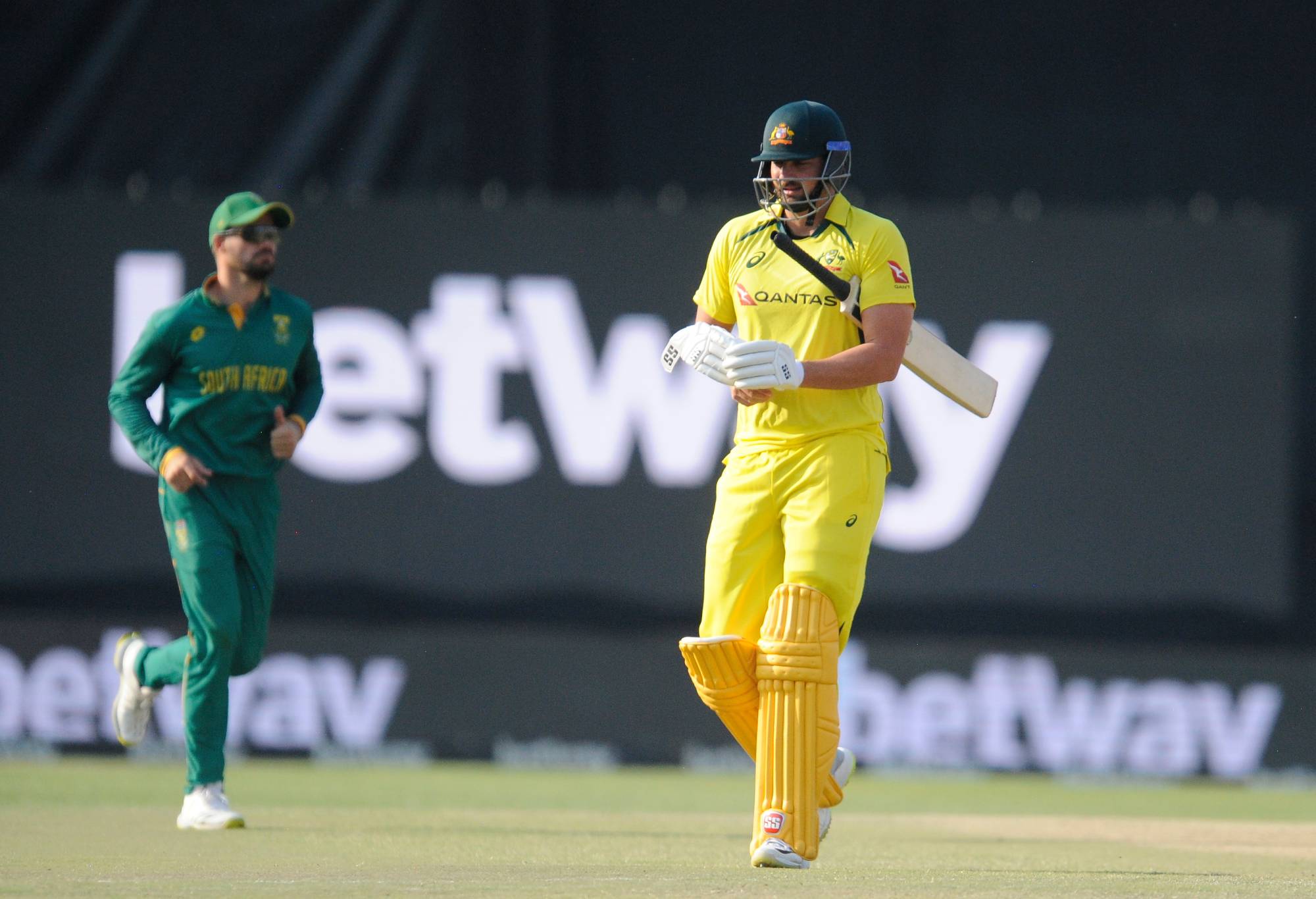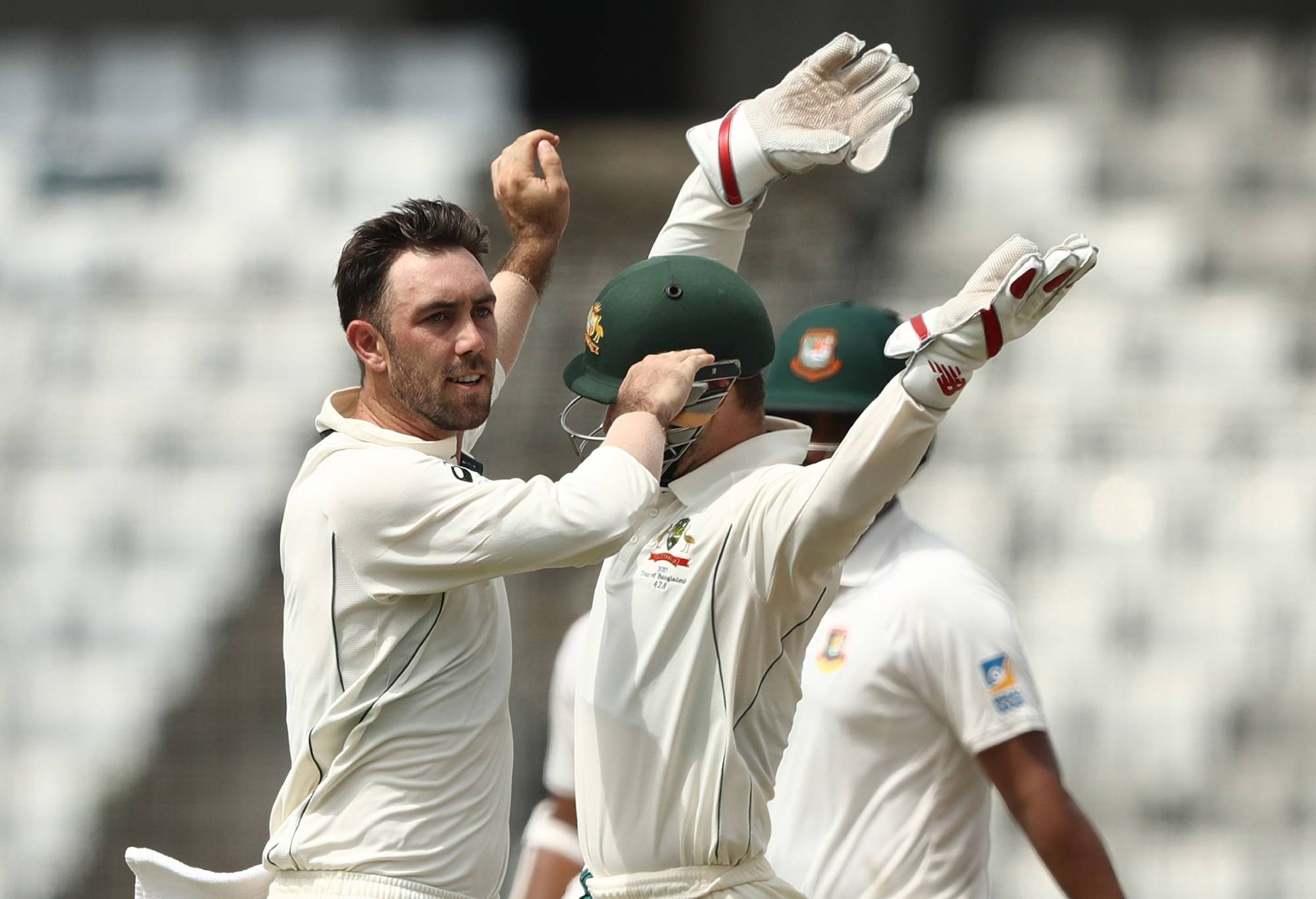It’s perhaps a sign of ODI cricket’s waning appeal or that Australia’s tour of South Africa is barely breaking into the footy-obsessed news cycle at finals time of year but Tim David’s unusual debut was a worrying sign.
The T20 specialist was called into the Australian side when Steve Smith delayed his return from a wrist injury and Glenn Maxwell returned home early due to an ankle problem.
David’s done well in the T20 team so the theory was why not give him a crack in the 50-over format in one of these relatively meaningless bilateral series.
He won’t be a late inclusion in the World Cup squad in India next month unless there’s at least a couple of injuries – Marnus Labuschagne is at the head of the standby batting list after his purple patch in South Africa.
But the fact is David does not play in the domestic one-day competition and does not even have a state contract.
He’s made it onto the international stage in an unusual way by first dominating in the BBL with his power hitting and then travelling the globe in the T20 franchise tournaments.
Take a breath before you read his list of teams on his Cricinfo bio … Hobart Hurricanes, Lahore Qalanders, Lancashire Lightning, Mumbai Indians as well as MI Cape Town and MI New York, Royal Challengers Bangalore, the Southern Brave (in the Hundred), St Lucia Kings, Surrey (in 50-over county matches) and Trinbago Knight Riders with 14 T20s for Singapore against other ICC associate nations before he hit the big time.
He’s clearly a talented batter and should be one of Australia’s attacking weapons at next year’s T20 World Cup in the Caribbean and United States.
But even though his selection came somewhat via convenience because he was already in South Africa with the T20 squad for the series which preceded the one-dayers, it’s a tough pill to swallow for the state players who have been slogging it out in the anonymity of the Marsh Cup, often at suburban grounds in front of modest crowds.
Tassie left-handers Jake Doran (two tons in his 335 runs at 83.75, striking at 80.14) and Caleb Jewell (two tons, 317 at 52.83 on a 104.27 strike rate) can feel hard done by while NSW opener Daniel Hughes continued to shine in the 50-over format, as has been his style over several seasons, with four centuries in belting 548 runs at 78.28 with a 94.48 strike rate.

Tim David. (Photo by Charle Lombard/Gallo Images/Getty Images)
David has failed to make the most of his opportunity, going cheaply for 1 and 8 in his two knocks against the Proteas, and the Australian selectors may bring Aaron Hardie back for the last two matches in the series at Centurion on Friday and Johannesburg on Sunday.
And it’s unlikely to be a common occurrence for a player who has taken his circuitous route to the Australian team to get selected ahead of those who have done the hard yards in state cricket.
Back when David Warner was selected in the Australian T20 side in 2009 before he had been selected to play first-class cricket for NSW there was mild panic that he could kick-start a trend of short-form specialists prioritising the lure of franchise contracts ahead of chasing the baggy green cap.
That never eventuated.
Australian cricket should not need to follow the path of the Wallabies and their Giteau Law mandating that only stalwarts who have represented their country a certain amount of times can play for their country if they are based overseas.
As a sidebar, you are not a true rugby journalist in Australia until you have written an article that mentions the vagaries and value of the Giteau Law. It’s a rite of passage with the NRL equivalent being an article mentioning the term “nightclub incident” or in AFL something to do with Collingwood fans claiming their racist behaviour has been blown out of proportion.
In retrospect it probably would have been more lucrative for players like Glenn Maxwell, Marcus Stoinis and Adam Zampa to solely focus on T20 leagues early in their career but the desire to represent Australia is still well and truly ingrained in the psyche of young players coming through the elite representative ranks from teenage years and beyond.

Glenn Maxwell celebrates taking a wicket in 2017 in Bangladesh during his brief Test career. (Photo by Robert Cianflone/Getty Images)
There seems to be a crop of young players coming through who have gone the other way, like Western Australian batter Teague Wyllie and Victorian duo Will Pucovski and Ashley Chandrasinghe who bely their millennial status by holding old-school views about which format they are focused on.
A considerable factor in this trio’s mindset and that of David’s is that they have realised early in their career which format suits them the best.
Multi-format cricketers are going to become rare unless there’s a drastic change in domestic and international scheduling to lessen the playing burden on the game’s best players amid all the T20 leagues that are popping up.
Like video stores in the 1980s, search engines at the turn of the century and smart phones in more recent times, the number of T20 competitions will dwindle quickly with only the best surviving.
>Cricket News

%20(3).jpeg)



0 Comments